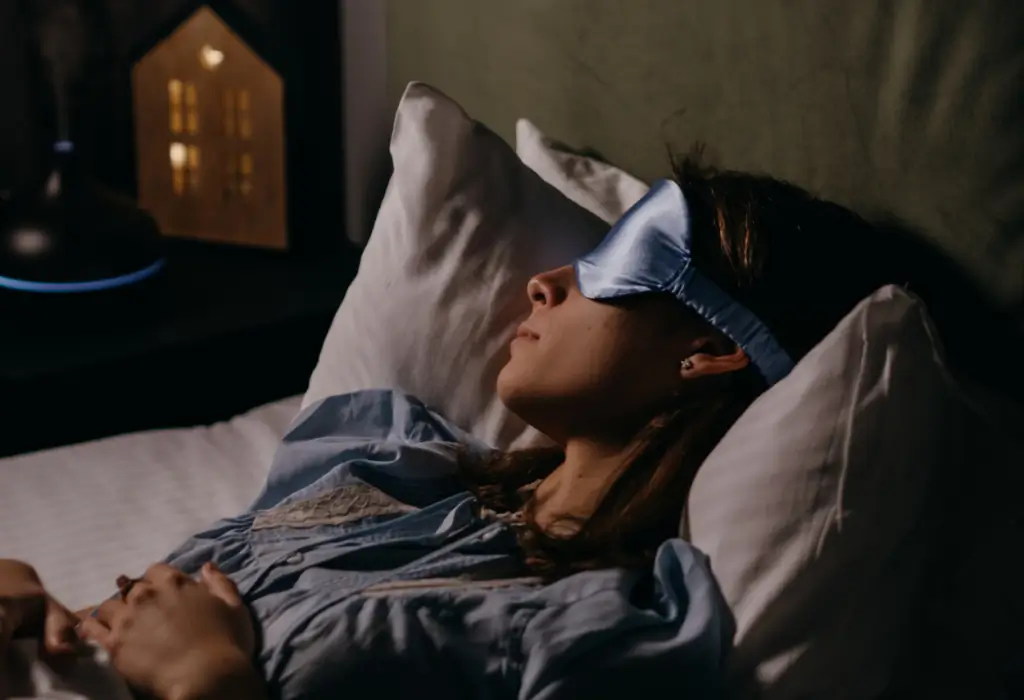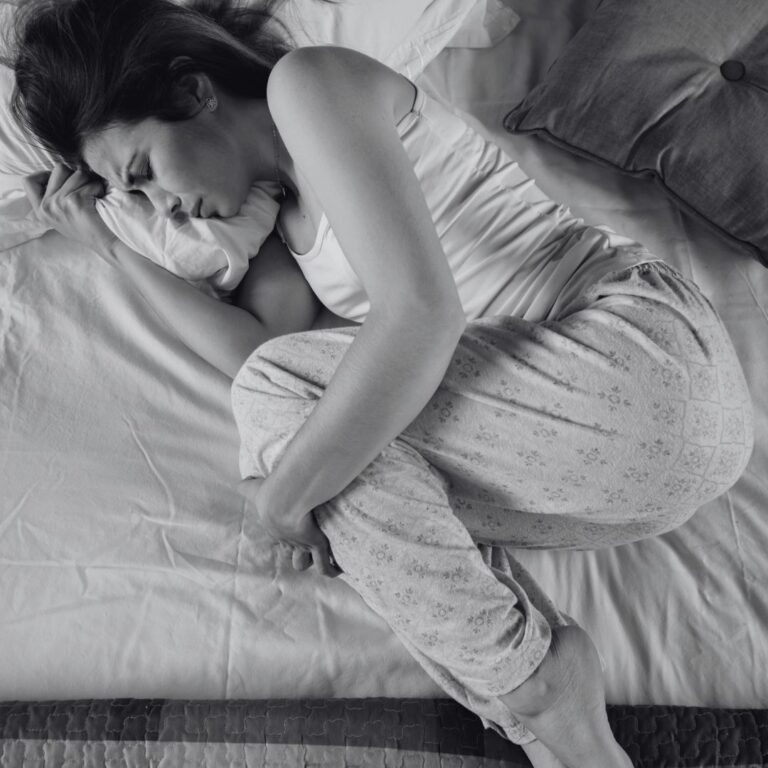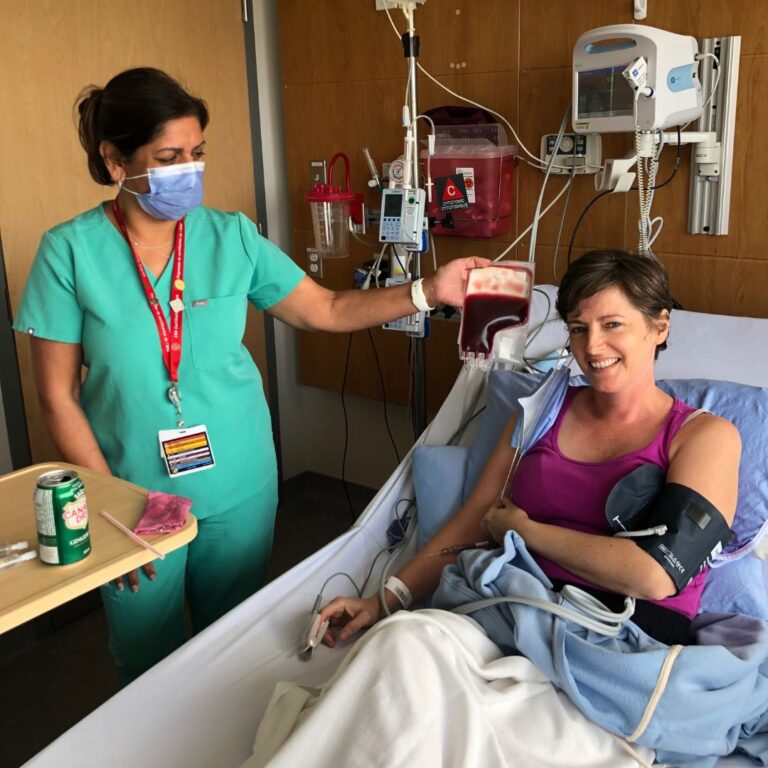11 tips for working through night sweats and hot flashes for a better night’s sleep
Health12.03.2024

After surgery to remove an ovary and my fallopian tubes put me into early menopause, I had a hard time sleeping.
Being a sleep consultant, I know how to help others ensure restful nights. Does it mean that I always take my own advice? No, of course not! Even though I know how important sleep is, when I reflected carefully, I realized I was not doing all the things I talked about in my seminars.
Did you know that we need 7-9 hours of sleep each night?
I was not getting that, so I went back through everything I knew and started to read more about improving my sleep as I navigated through menopause and post-menopause.
Here are 11 tips that helped me sleep better and may help you, too.
Pay attention to what you eat and drink
Did you know that dehydration can lead to poor sleep? If you are dehydrated, it can be harder to fall and stay asleep. However, choose your drinks carefully. Caffeine and nicotine are stimulants, and it can take hours for the effects to wear off. Alcohol may help you fall asleep quickly, but it can disrupt your sleep later in the night. In the evening, opt for water, hot lemon with honey, or herbal tea.
There aren’t many foods that help with sleep. But some people find that if they snack late, they don’t sleep as well. If this sounds like you, try stopping the snacks after dinner. Or, if you need a little something in the evening, opt for lighter snacks like a few almonds, some air-popped popcorn, an apple with nut butter, or, my favourite, plain Greek yogurt with berries.
Limit daytime sleep
I admit it: I love naps. I always have! Up until a few years ago, if I had the time, I would sleep for two hours in the middle of the afternoon. But when I found that was having a negative impact on my sleep at night, and I was not getting the best quality sleep that I needed, I decided to limit naps to 20 minutes. This helped to ensure I didn’t get into the deep sleep stage, and it was just enough to get through the rest of the day.
People who have a hard time sleeping at night are often tempted to nap, but that can cause a vicious cycle of daytime sleep and wakeful nights. If you can, skip the nap and save that sleep for the night. Get outside for a walk instead. Or, if you really need to sleep, set your timer for 30 minutes and take a power nap. Just be sure to get up when your alarm sounds.
Get active
Physical activity can promote better sleep. The ideal time to get active is in the early part of the day because it raises your core body temperature, but if you need to do it after work – get it done!
If you have read anything about perimenopause or menopause, you will know that working out has many other benefits including better bone health, heart health, and weight management. Hormonal changes during menopause can lead to the loss of muscle mass, so physical activity can help build muscle mass and strength. One more benefit to getting regular exercise is the benefits it can have on your overall mood and mental health.
Create a comfortable sleep environment
With kids we suggest darkening the room, keeping it cool, and using white noise to decrease the background noises. You can set up your room the same way! Choose bedding that is not too hot or too cold. Natural fibres like cotton will help to wick away sweat and regulate your body temperature. Layering up the bed means that you can pull up extra blankets if needed.
Don’t forget to turn down your thermostat early in the evening as well. I suggest keeping it somewhere between 20 and 22°C for kids, but a cooler temperature is also fine if you prefer it. We set our house to 18°C. Adding a bedside fan or turning on a ceiling fan for a bit of a cool breeze can help cool you down as well.
BONUS TIP: Look at your mattress. Does it need to be replaced? Your mattress is the most used piece of furniture in your house, so be sure to check it every five years.
Get tech out of your bedroom
Exposure to blue light before bed tells your brain that it is time to be awake and can disrupt the production of melatonin (our sleep hormone). Ideally you turn off your laptop, TV, phone, etc. two hours before bed. I challenge you to try it for one week and see if you start to sleep better.
For me, I notice that if I am on my computer or watching TV right up until bedtime, then when I close my eyes, everything is going at a high speed. If I try to picture a relaxing scene like the beach in Jamaica, it zooms by, and it takes much longer for me to fall asleep. That’s how I know that screens before bed are not for me. Having said that, I know that some people love to watch dog videos or comedians as part of their end-of-day routine. If you can honestly say that it doesn’t have any impact on your sleep, then go for it, but move it to the start of your bedtime routine.
Stick to a consistent sleep schedule
It can be tempting to go to bed later and sleep in on the weekend but try to keep your schedule close to the same each day. Maintaining a consistent schedule helps to regulate your circadian rhythm. You can always go to bed a little earlier if you need to, but it’s best to avoid going to bed much later than normal.
Create a bedtime ritual
I know from my work with children that a consistent bedtime routine sends cues to our brain that sleep is coming next. If you can, plan for your bedtime ritual to start one hour before bed. Breaking your bedtime routine down into 20-minute increments can help to calm your body and mind leading up to bedtime.
The first 20 minutes can be used to prepare for the next day. This could be writing your to-do list, laying out your clothes or your kids’ clothes, etc. The next 20 minutes should be spent on your hygiene, washing your face, taking a bath, and brushing your teeth. The last 20 minutes can be spent on winding down, ideally without screens. When I read or do a word search or play a game of cards, my mind is much calmer and more peaceful when I close my eyes.
If you can’t carve out one hour, try for 30 minutes and spend 10 minutes in each phase.
Dress for better sleep
Opting for natural fibres (like I suggested for your sheets) will help your body temperature to regulate more easily. If you are cold going to bed, dress in layers. You can always remove a long-sleeve cotton t-shirt or kick off your socks when you get warm.
While there are many cute polyester pyjama options, polyester is a synthetic material that does not breathe the way cotton and linen do. Cotton will wick away sweat, while polyester will not, meaning the sweat will stay on your skin.
BONUS TIP: If you have a hot flash, or if you have hot feet (yes, it is a symptom), stick your feet out the bottom of your sheet. You can rest them on the bed until you cool down. Hot feet were one of my biggest symptoms, and while some people joke about not being able to sleep with their feet off the bed in case the monster gets them, it was the only way I could sleep.
Manage your stress
Keep a notebook next to your bed so that you can jot down your last-minute ideas. Some people call this a “brain dump.” Try starting with “I am feeling…” and see what you write – let it flow. Only you will be reading this, so it can be a short entry or pages long! If your mind is racing, thinking about what you did or didn’t do today or what you need to do tomorrow, then you are not going to get a good night’s sleep. Write it down so that you can take care of it when you wake up.
Meditating before bed is another great way to help with stress and anxiety. There are a lot of free meditation apps available. While I don’t suggest keeping your phone beside the bed (too tempting to glance at it if you wake in the night), you can set up a meditation out of reach, and it will turn off when it is done. If you don’t like the first one you listen to, try another! There are so many voices and meditations to choose from.
If you can’t sleep, get out of bed
It’s really important to associate your bed with sleep. If you find yourself awake in the night, tossing and turning, get up. You can plan for this in advance if it has been happening recently. Plan a spot with a book, crossword puzzle, word search, etc. and soft lighting. Spend 10 -15 minutes with your activity and then go back to bed. Avoid screens during this time, since the blue light will send a signal to your brain that it is time to wake up and decrease your melatonin production.
Talk to your healthcare team
If sleep problems persist, make a list of your symptoms, questions, and concerns. Talk to your doctor and/or your naturopath, or request to see a gynecologist who specializes in menopause. They will be able to identify any underlying issues and provide personalized advice or treatment options.
Everyone is different! It may take some time and trial and error to find what works best for you. Have some tips that you want to add? Let me know! Whether you are in perimenopause, menopause, or post-menopause, it is never too late to sleep better.










